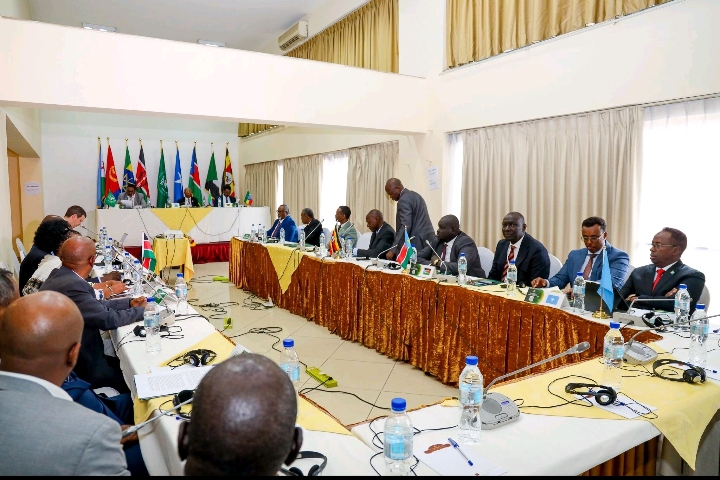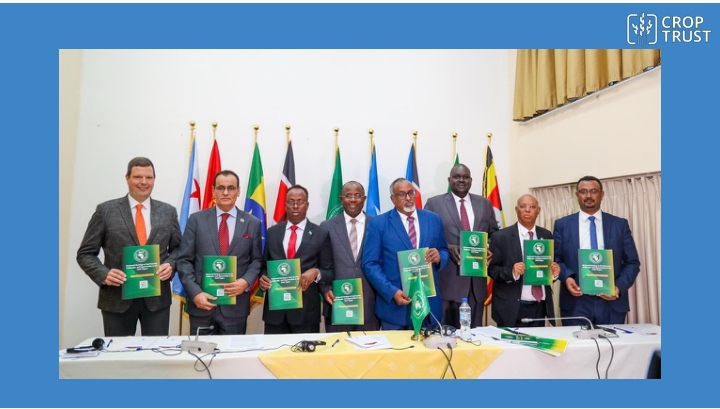UNFSS+4: Global Flagship Initiative on Food Security Takes Center Stage in Mobilizing Investment for SDG 2 — Advanced the Role of Public-Private Partnerships.
By Raymond Enoch.
In a landmark gathering at the United Nations Food Systems Summit +4 (UNFSS+4) Stocktake, the Global Flagship Initiative on Food Security (GFIFS) emerged as a leading force in mobilizing investment for Sustainable Development Goal 2 (Zero Hunger). Hosted in Addis Ababa under the co-leadership of the Governments of Ethiopia and Italy, this year’s summit brought together more than 3,000 stakeholders from across the globe — including ministers, youth, Indigenous Peoples, private sector leaders, and civil society — united by the shared vision of transforming food systems to be more equitable, resilient, and sustainable.

Dr. Conrad Rein, Secretary of the Global Flagship Initiative on Food Security, delivered a compelling keynote presentation outlining how the GFIFS is mobilizing finance and innovation for food systems transformation. With more than 30 global partners, the initiative operates across key regions like the IGAD states and the Sahel, supporting local producers, scaling digital inclusion, and linking science to investment-ready models.
“The Flagship is not just a development project — it’s a scalable mechanism to connect governments, science, and communities through a multi-stakeholder platform,” Dr. Rein stated. “We are building agile, climate-resilient value chains that empower producers and restore ecosystems.” An example cited was the scaling of gum arabic production — a critical export for Sudan — into 14 countries, boosting smallholder incomes by up to 75%. GFIFS’s digital finance systems will ensure transparency and direct payments to producers.

GFIFS also announced a new investment partnership with the Joint SDG Fund during the summit, signaling a major scale-up of existing programs in Cameroon. The official launch of this large-scale commitment is scheduled for September 2025 in New York. The Flagship session, titled “Mobilizing Investment for SDG 2: The Role of Public-Private Partnerships,” was further elevated by the address of the United Nations Deputy Secretary-General, who delivered a passionate closing speech to participants.
Addressing delegates at the end of the three-day summit, the Deputy Secretary-General extended heartfelt appreciation to the Ethiopian and Italian governments for their leadership, and to all 3,000+ participants who contributed insights and momentum to the global movement for food systems transformation. “This gathering has reminded us of the value of coming together as a global community to benefit from the perspectives and experiences of others — and to shape new, bold action for the future,” she said.

Reflecting on progress since the first UN Food Systems Summit in 2021, the Deputy Secretary-General noted that 130 countries have now established National Pathways for Food Systems Transformation. From regenerative school meal programs in over 170 countries to stronger integration of food systems into climate strategies, momentum is building. Regional and global declarations, including from COP28, G7, G20, and the Kampala Declaration, were credited for institutionalizing this growing movement.
Key initiatives launched or elevated during the summit included: The Food Systems Accelerator (FAO, GAIN, UN Coordination Hub) to finance and scale country-level transformation; the 3FS Framework (IFAD and the World Bank), providing tailored financing strategies; the Business Compendium, co-led by FAO, UN Global Compact, and WBCSD, offering 15 investment-ready models for sustainable agri-business; and the UNFSS+4 Youth Declaration, developed by 3,000+ youth, calling for intergenerational equity and climate justice.
The Deputy Secretary-General announced that the Convergence Initiative, which aligns food systems and climate action, will continue guiding nations through complex, often competing, policy decisions. Citing the newly released 2025 State of Food Security and Nutrition in the World (SOFI) report, she issued a stark reminder of the stakes at hand. Between 638 and 720 million people faced hunger in 2024, while 2.6 billion people could not afford a healthy diet. Malnutrition remains entrenched among women and children, and conflict zones suffer acute food insecurity, sometimes with deadly consequences.
“Farmers everywhere are facing unprecedented climate impacts. The world’s poorest countries continue to struggle with inflation, debt, and fiscal constraints,” she said. “We must summon global solidarity and reverse the alarming reduction in humanitarian funding.” Projections still show that 512 million people will face hunger by 2030 — nearly 60% of them in Africa.
In her call to action, the Deputy Secretary-General outlined six critical priorities: Urgent mobilization of resources and innovation; acceleration of National Pathways implementation; unlocking of finance and investment; adoption of integrated approaches; leveraging of science and technology; and positioning youth as co-leaders in food systems transformation. These priorities, she said, must anchor global action moving forward.
Looking ahead, the outcomes of UNFSS+4 will feed into several global milestones, including the 2025 World Social Summit, COP30, COP17, and the 2027 SDG Summit. The UN Food Systems Coordination Hub and its network of Resident Coordinators will continue supporting country-level implementation with urgency and focus.
“Our movement has shown what’s possible when we work together across sectors and geographies with a shared purpose,” the Deputy Secretary-General concluded. “Let us continue to lead the way — together.”
As delegates departed from Addis Ababa, the call was clear: the next five years must be defined by courage, collaboration, and concrete action. The Global Flagship Initiative and other innovations launched at UNFSS+4 may well serve as turning points in humanity’s pursuit of a world without hunger — and a sustainable planet for future generations.









